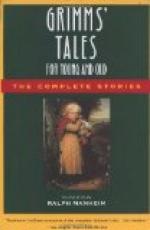In the evening, my old apple-woman was true to her appointment, and from her I gathered the following particulars: William Carter was a poor boy, the eldest of a large family, who, with their mother, were left destitute by the death of their father. Their poor neighbours were charitable, as the poor, to their credit be it spoken, so often are; and one took one child, and one another, until something could be thought of and done for their subsistence. William had made the most of the scanty schooling his father had afforded him, and could read a little. He was, moreover, a steady, hard-working boy; yet the only occupation he was able to obtain was that of tending a cow on the border of a large bog. In return for this service, he was comfortably lodged and fed, and for a time the clothes he had were sufficient. He was in the habit of saving any scraps of printed paper which fell in his way, and by means of these he somewhat improved in his reading; for while the cow was munching away, little Billy had ample time for his studies, without neglecting her either, for he made a point of looking out for the sweetest grass, and leading her to it.
By his care and attention, he gave such satisfaction to his employer, that by the time his clothes were worn out, he was allowed wages sufficient to replenish them; and his good-behaviour gave such confidence and respectability to his family, that a neighbouring farmer engaged one of his younger brothers in a capacity similar to his own. One day this farmer gave Billy a newly-laid goose’s egg, thinking it might make him a good meal, and be something of a dainty, and as a sort of return for an act of good-nature and watchfulness on Billy’s part, he having noticed that a certain gate leading to the kitchen-garden had been left open, took the precaution to close it, thereby preventing the incursion of a greedy sow and her interesting family, which would undoubtedly have played the part of the Goths in that flourishing spot. It is very likely that Billy’s first impulse was to boil his egg and eat it; but a moment’s reflection convinced him that this would be conduct very like that of the boy in the fable, who slaughtered the goose that laid golden eggs. But how to hatch his egg—for this was what he thought of—became now the question. The good woman of the house noticed that Billy was unusually silent at supper-time, and thought at first that some disaster must have happened. She learned, however, that the cow had her customary bed of soft heather, which it was Billy’s pride to pick for her, and had been as carefully attended to as usual in every particular. We ought to mention that Billy was a great favourite with his mistress; and perhaps he had won her heart by the care and attention he had bestowed at every spare moment on one of her little ones, who was a very sickly, fretful child, but who, somehow or other, was always most quickly pacified by Billy. She soon learned the cause of his thoughtful silence, and kindly offered to remove two or three eggs from under a duck which was then sitting, and give their place to her cow-boy’s single treasure. This was the foundation of William Carter’s fortune; and it is worthy of remark, that both the gift of the egg, and the opportunity of hatching it, he owed to acts of thoughtful good-nature on his own part.




